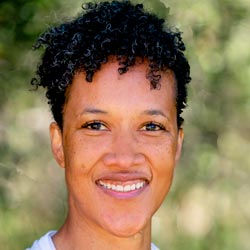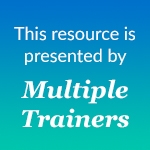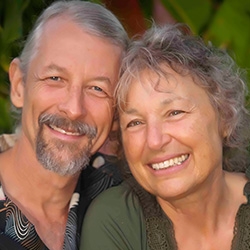

Search Results: work
-
Hi friends, My name is Itzel and I’m happy for this opportunity to share a bit about myself and how I came to teach NVC. I was an activist before I knew what the word meant. When I was a child, I often argued with the adults around me about what I thought was “right.” If I had a nickel for every time a grown-up said to me, “You should be a lawyer,” I probably would’ve collected enough money to pay for the law school education that I eventually got. I left my traditional legal career path after more than a decade to become a...
-
- Share NVC in a way that keeps your group engaged
- Walk away with practical facilitation tips and 5 session outlines
- Know how to respond to nay-sayers
- Learn how to promote your work
-
- Discover what is yours to do in response to our global crises
- Weave nonviolence more deeply into how you live and lead
- Receive ongoing support in how to be effective and alive while pursuing your highest goals
- Increase your capacity to face and mourn current reality as a source of greater choice and energy
- Be a part of transforming the legacy of scarcity, separation, and powerlessness into a livable future
-
Trainer Tip: Are you meeting your needs for exercise? Consider which activities would help you meet your needs for physical and emotional health and fun, rather than focusing on what expert opinion says. If you feel overwhelmed and had a hard time sticking to the program feel free to tweak your program so that you enjoy it more.
-
-
Ask the Trainer: "Fairness" isn't on the needs list. What needs might be underneath it?
-
Learn Somatic Self-Empathy to manage yourself with clarity and compassion.
-
Discover and embrace the inner chatter beneath your words to deepen self-connection.
-
When building successful relationships, it can be very helpful to see yourself as a collection of different inner parts that developed due to various life experiences. Without empathy and acknowledgment, our inner parts tend to work against us. That's when we're called upon to build and develop our inner leadership...
-
Miki Kashtan reveals how choice is always available, no matter the situation or circumstances.
-
Join CNVC Certified Trainers Jeff Brown, Jean Morrison, Karl Steyaert, Kathleen Macferran, Mary Mackenzie and Sylvia Haskvitz in a lively Q&A session focusing on naturalizing NVC into our daily interactions.
-
Use NVC and mediation tools to transform conflict into authentic connection.
-
Shift how you respond to conflict with this Mediate Your Life course and create lasting change.
-
The highest leverage point for effective meetings is preparing with self inquiry. Before saying something, we can ask ourselves about who this is serving, what needs it serves to say it, if there is a request we want to make, how to make the request actionable, and more. If more people at meetings do this, it can reduce the overall number of tangents we experience at meetings.
-
Build thriving communities through dialogue, a collaborative, heart-opening path to shared purpose.
-
Conflict occurs when disagreements undermine the sense of trust and safety in family, workplace, or community. Shantigarbha shares nine tips for addressing, and even transforming conflict.
-
Mediation is a great skill to have whether it's for your personal relationships or in the workplace. We look at four different techniques and their benefits in a role-play between two neighbours discussing a dispute.
-
Trainer Tip: Tap into feelings, needs and requests for greater self connection with the six steps in this worksheet.
-
Use this worksheet to check to see if you’re making a request, rather than a demand. Clarify and connect your request to your needs. Check your motivations. Use a phrase, question, or empathy guess to connect to the person if they say “no”. See sample requests for actions, offers, and for deepening understanding.
-
Instead of doing an "apology" using the NVC framework, you can do a "do over" to express regret. This roleplay exercise shows you how. You'll be talking about your needs that were not met by what you did, expressing what you wanted to say instead of what you said, and more.
Quick Links

Stay in Touch!
We value your privacy, won't share your email address and you can easily unsubscribe any time.



















